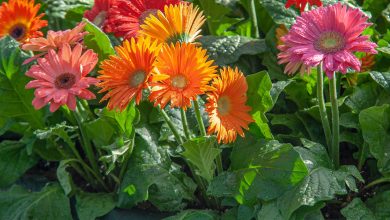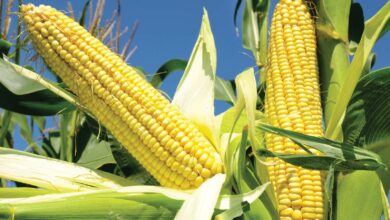Types of Organic Fertilizer: 10 ecological fertilizers for plants
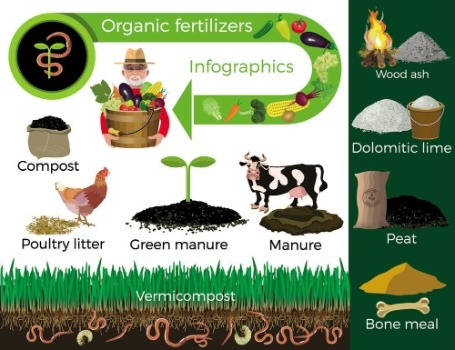
Fertilizer is an essential element for the correct growth and development of plants in the organic garden and garden. There are many types of fertilizers for plants, but if we want to achieve a 100% organic harvest, we must do without chemical or synthetic fertilizers and replace them with natural fertilizers or organic fertilizers such as the ones we will see below.
Types of organic fertilizer. 10 Fertilizers for the organic garden
Compost
Compost is one of the best known organic fertilizers used in organic farming for its benefits for the soil and for plant growth.
In addition to providing nutrients, this organic fertilizer favors the proliferation of beneficial microorganisms in the soil and improves its structure.
This natural fertilizer can be bought in specialized stores but you can also make homemade compost at home using dry leaves, cut grass, pruning or crop residues that we have removed from the garden and organic waste from the kitchen such as fruit peelings, egg shells, etc.
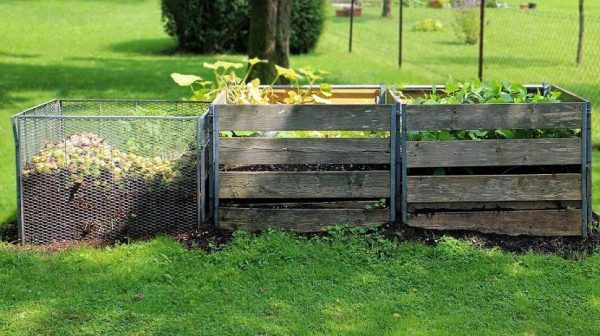
compost tea
It is a liquid fertilizer that we can use to fertilize and irrigate at the same time. It can be done at home by infusing the compost in water and letting it sit for a while so that the nutrients in the compost are extracted.
One of its advantages is the ease of application, since we will not have to use the garden tools to incorporate it into the soil or mix it with the substrate. In the article Compost tea or homemade compost tea step by step we saw how to make it and other advantages.
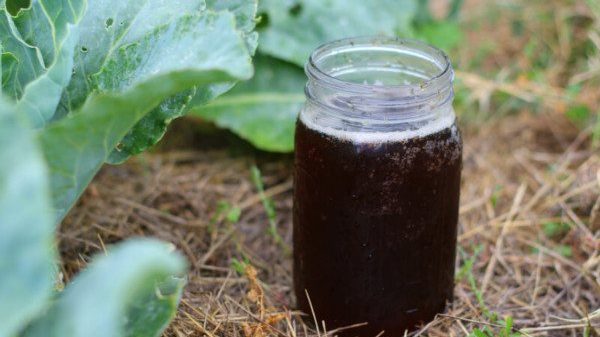
Vermicompost
Vermicompost or worm compost is an organic fertilizer that is very rich in essential nutrients such as nitrogen. It is a variant of common compost but, if possible, even richer in nutrients and decomposed organic matter.
It comes from the digestion of earthworms on the current compost, on which they live and feed until giving rise to this complete organic fertilizer. In the article on worm compost you will find more information on how it is done and what its benefits are.
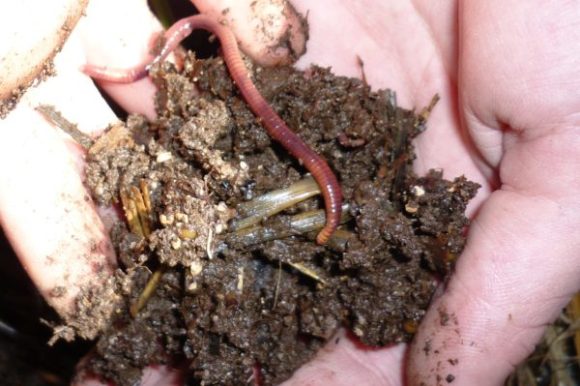
Manure
You can use cow manure, horse manure, sheep manure …, guano, or semi-solid excrement, such as chicken manure.
Manure is a good fertilizer for an organic garden, although if you live in a city and have an urban garden, it will be a little more difficult to obtain for free. However, there are some types of manure, such as horse manure, that are easy to find at garden stores or online.
If you have obtained them in a nearby farm, you need to let them compost or mature for a while so that they decompose a little and thus, among other things, the temperature reached causes the seeds that could remain in the excrement to «die» and no undesirable weeds appear in our crops.
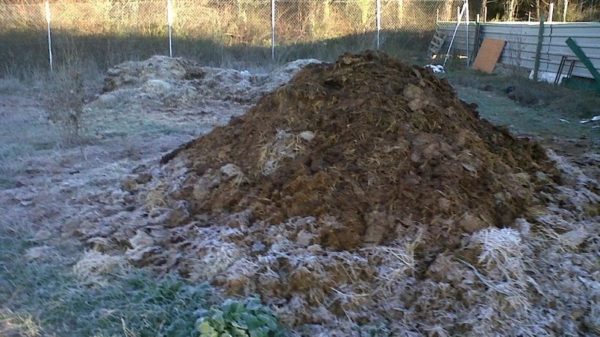
Peat
Peat is a perfect organic fertilizer to enrich and nourish the substrate before sowing. It is a type of fine, light and dark charcoal that forms in peat bogs.
Peat bogs are wetlands where Sphagnum moss and other plants accumulate which, after decomposing, give rise to this ecological fertilizer rich in organic matter, minerals and nutrients.
Peat, like other organic fertilizers, in addition to providing organic matter, improves soil structure and favors the slow release of nutrients, which is very beneficial for garden plants.
Although it is an ecological organic fertilizer, it is important to know that peat is a non-renewable natural resource, since the rate of extraction of peat reserves is being higher than that of natural generation, so its responsible use is recommended.
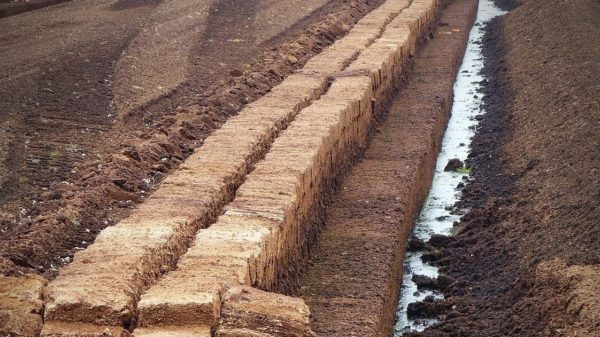
humic amendments
They are a type of concentrated organic fertilizer made up of a mixture of different decomposed fertilizing substances, such as compost, manure or peat. Humic amendments can be solid or liquid (such as compost tea).
Before buying a humic amendment, it is important to read its composition and make sure that it only has nutrients of organic origin, and that it is free of added artificial substances or synthetic compounds.
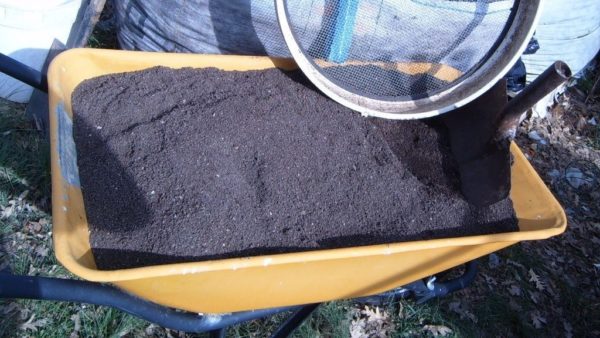
banana tea
It is a type of organic fertilizer intended, above all, to fertilize plants that have potassium deficiencies or also to promote and improve flowering and fruit set (since potassium is an essential nutrient for these processes).
You can make the house in a homemade way by boiling, for 10 minutes, several chopped banana peels (about four or five) in a liter of water. After straining the infusion, mix each liter of banana tea with two liters of water to add to the plants as liquid organic fertilizer.
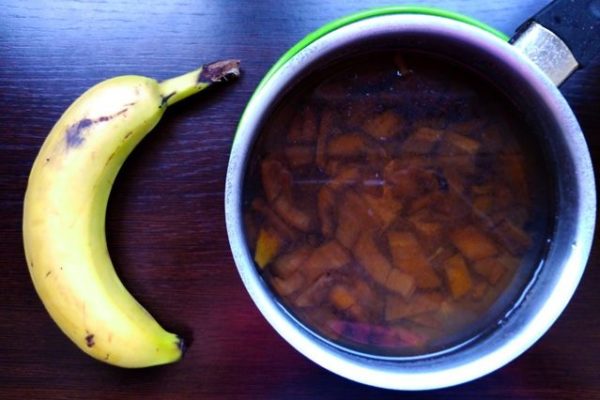
green manures
Green manures are a type of special ecological fertilizer. It is not an organic fertilizer that we can buy in a store as is the case with other fertilizers, but rather they are plants that grow in our own garden, in the place where we will later place the vegetables.
They are small plants, such as clovers or alfalfa, that are planted in the ground (during the winter, for example) and then pulled up and buried in the ground, where they will decompose and release nutrients little by little.
It is an organic fertilizer very rich in nitrogen that, in addition, has many other advantages for the organic garden. You can read more about this organic fertilizer in the post I wrote about green manures for organic gardens.
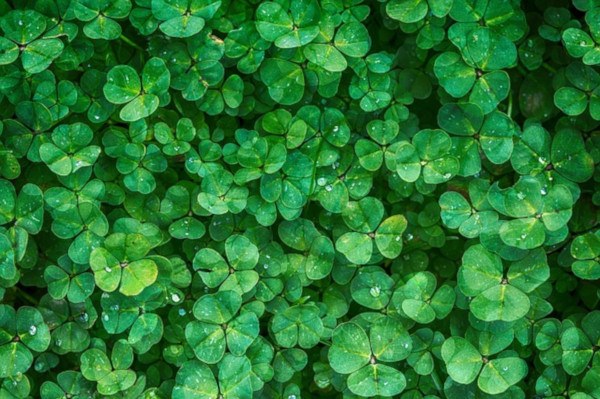
Rooting fertilizers for cuttings
If we want to reproduce aromatic or other plants through cuttings, the use of rooting agents or biostimulants will help us to give them more possibilities to prosper.
In the article on how to make homemade natural rooting, Elena showed us some rooting that we can do ourselves.
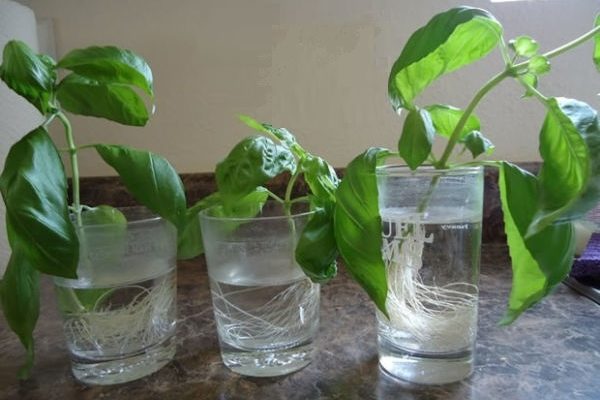
ashes
The ashes from the remains of wood, firewood or dry burnt leaves provide a high content of phosphorus and potassium, so if we suspect that our plants lack these types of nutrients, it will be a good idea to add ashes. To incorporate it into our crop, it is best to mix the ash well with the substrate or add it mixed with the irrigation water.
In addition, the ashes are also used to increase the pH of the soil if it is too acidic (in that case you have to be careful not to use it in excess, otherwise it will become too basic, which is not good either).
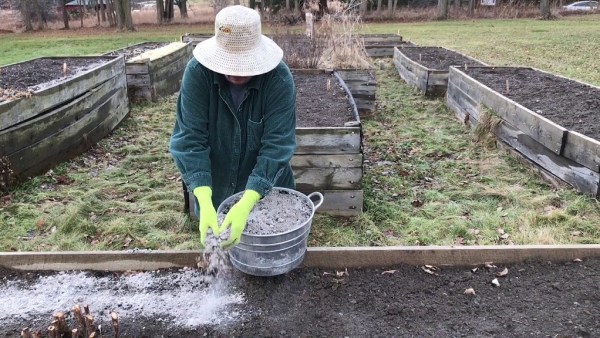
These are the organic fertilizers that I know, do you know of other organic fertilizers for the garden or do you have experience with any of these? If so, feel free to tell us about your experiences in the comment thread below. Cheers!
References
- Brechelt, A., 2004. Ecological soil management. Agriculture and Environment Foundation (FAMA), Dominican Republic.
- Félix Herrán, J. et al., 2008. Importance of organic fertilizers. Magazine of Culture Society and Sustainable Development of the University
- Capa Mora, ED, 2015. Organic Fertilizers. Series: Organic Production of Temperate Climate Vegetables. PYMERURAL and PRONAGRO Program (Honduras).


